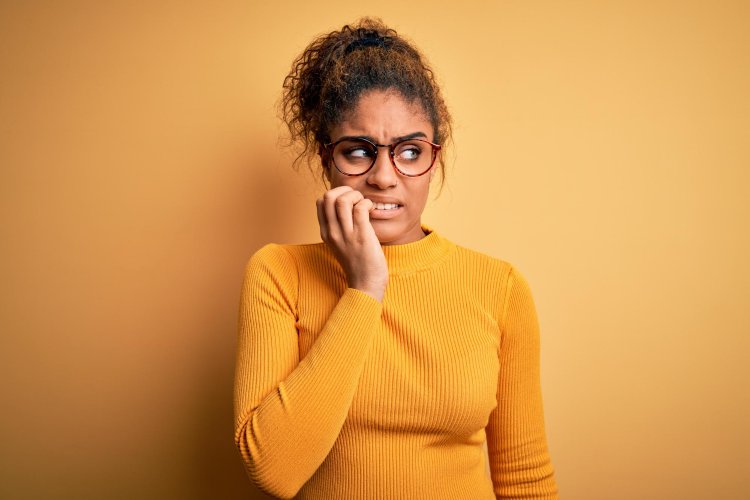Why Do We Bite Our Nails? Uncovering the Causes of Onychophagia
Onychophagia, commonly known as nail-biting, is a habitual behavior where individuals compulsively bite their fingernails and the surrounding skin. While often perceived as a minor nuisance, chronic nail-biting can lead to severe physical and psychological repercussions. This article delves into the causes, effects, and treatment options for onychophagia, providing a comprehensive understanding of this condition.

Causes of Onychophagia
The exact causes of onychophagia are multifaceted and can be influenced by a combination of genetic, psychological, and environmental factors:
Stress and Anxiety
One of the primary triggers for nail-biting is stress or anxiety. The act of biting nails can provide a temporary sense of relief or distraction from stressful situations, serving as a self-soothing mechanism.
Genetic Predisposition
Research indicates a hereditary component to nail-biting, suggesting that individuals with family members who also engage in this habit are more likely to develop it themselves.
Psychological Disorders
Onychophagia is often associated with certain psychological conditions such as obsessive-compulsive disorder (OCD), attention-deficit/hyperactivity disorder (ADHD), and other anxiety disorders. These conditions can exacerbate the compulsion to bite nails.
Developmental Factors
Nail-biting commonly begins in childhood and can continue into adulthood if not addressed. Children may start biting their nails due to curiosity, imitation, or as a response to stress.
Perfectionism
Some individuals with perfectionistic tendencies may bite their nails as a response to perceived imperfections or as a way to cope with the pressure to maintain high standards.
Effects of Onychophagia
The consequences of chronic nail-biting extend beyond the superficial, affecting both physical health and psychological well-being:
Physical Damage
Persistent nail-biting can lead to various forms of physical damage, including:
- Nail Deformities: Regular biting can cause nails to become misshapen and lead to abnormal growth patterns.
- Cuticle Damage: The skin around the nails can become red, swollen, and prone to infection due to repeated trauma.
- Nail Bed Damage: Continuous pressure and trauma can damage the nail bed, potentially resulting in permanent deformities.
Dental Issues
The habit of biting nails can negatively impact dental health, causing:
- Tooth Damage: Teeth can become chipped or cracked from the constant gnawing.
- Malocclusion: Misalignment of the teeth may occur due to the pressure exerted while biting nails.
- Enamel Erosion: The repeated friction can wear down the enamel, making teeth more susceptible to decay.
Infections
Biting nails exposes the mouth to harmful bacteria and pathogens, increasing the risk of:
- Paronychia: A skin infection around the nail that can cause redness, swelling, and pus-filled blisters.
- Herpetic Whitlow: A painful viral infection caused by the herpes simplex virus, which can enter through breaks in the skin.
- Gastrointestinal Issues: Ingesting bacteria from the nails can lead to stomach infections and other digestive problems.
Psychological Impact
Chronic nail-biting can have significant psychological effects, including:
- Embarrassment: Visible damage to nails and surrounding skin can cause feelings of shame and self-consciousness.
- Social Anxiety: Individuals may avoid social interactions or hide their hands to prevent others from noticing their habit.
- Low Self-Esteem: Persistent failure to stop nail-biting can lead to feelings of inadequacy and low self-worth.
Treatment and Management
Effective treatment of onychophagia requires a comprehensive approach that addresses both the physical habit and underlying psychological factors:
Behavioral Interventions
Various techniques can help individuals break the habit of nail-biting:
- Habit Reversal Training (HRT): This involves teaching individuals to recognize the triggers for nail-biting and replacing the behavior with a competing response, such as clenching their fists or playing with a stress ball.
- Cognitive-Behavioral Therapy (CBT): CBT can help address the thoughts and emotions underlying the habit, providing strategies to manage stress and anxiety more effectively.
Pharmacological Treatment
In cases where nail-biting is linked to psychological disorders, medication may be prescribed:
- Selective Serotonin Reuptake Inhibitors (SSRIs): These can help manage symptoms of anxiety and OCD, reducing the compulsion to bite nails.
- Other Medications: Depending on the underlying condition, other medications such as antianxiety drugs or ADHD medications may be used.
Physical Barriers
Creating barriers can help deter nail-biting:
- Bitter-Tasting Nail Polish: Applying a specially formulated bitter-tasting nail polish can discourage nail-biting by creating an unpleasant taste.
- Gloves or Bandages: Wearing gloves or bandages can physically prevent access to the nails, reducing the likelihood of biting.
Stress Management Techniques
Incorporating activities that reduce stress and promote relaxation can help decrease the urge to bite nails:
- Exercise: Regular physical activity can help reduce overall stress levels.
- Mindfulness and Meditation: Practicing mindfulness and meditation can improve emotional regulation and decrease anxiety.
- Hobbies and Interests: Engaging in enjoyable activities can provide alternative outlets for stress relief.
Nail Care and Maintenance
Keeping nails well-groomed can reduce the temptation to bite:
- Regular Trimming: Keeping nails short and neat can make them less tempting to bite.
- Manicures: Professional manicures can enhance the appearance of nails and motivate individuals to maintain their nails.
Onychophagia is a complex condition that requires a multifaceted approach to treatment. Understanding the underlying causes and potential consequences is essential for effective management. By combining behavioral strategies, psychological support, and sometimes medical intervention, individuals can overcome nail-biting and improve their overall quality of life. If nail-biting is affecting your daily life, seeking professional help can be a crucial step towards recovery.
Disclaimer
The information provided in this article is for educational purposes only and should not be considered medical advice. If you have any health concerns or are experiencing symptoms, it is important to consult with a healthcare professional, such as a doctor or clinic, for proper diagnosis and treatment. Always seek the advice of your doctor or other qualified health provider with any questions you may have regarding a medical condition. Do not disregard professional medical advice or delay in seeking it because of something you have read in this article.
#health #wellbeing #onychophagia #nailbiting #mentalhealth
What's Your Reaction?





















